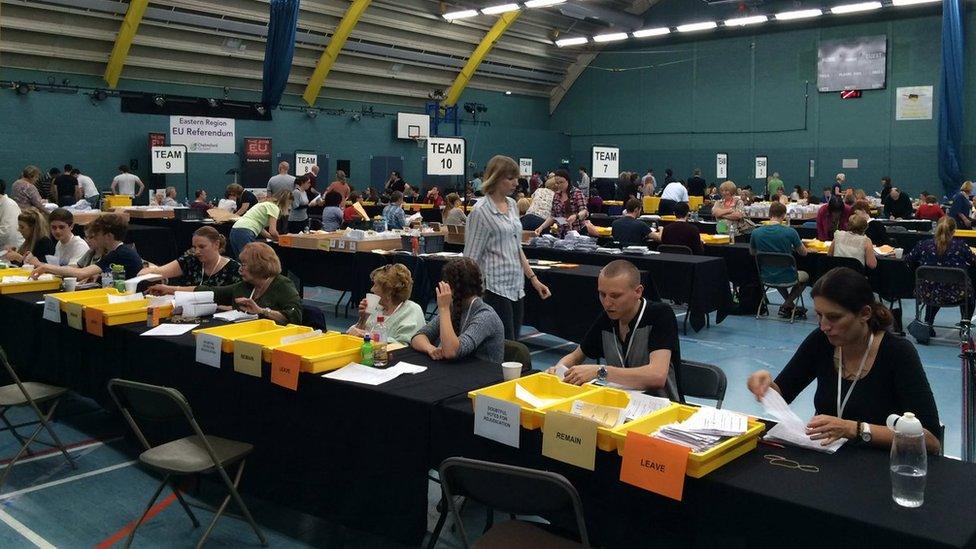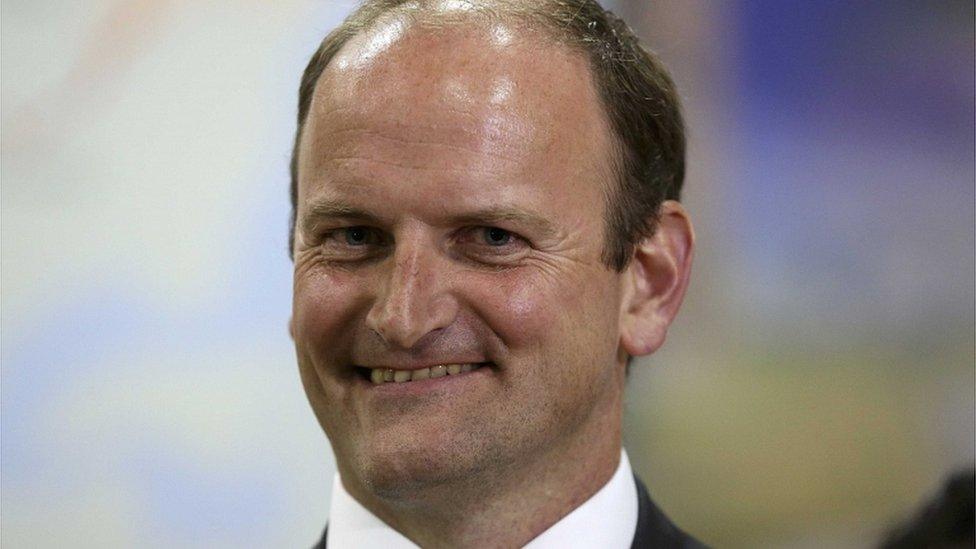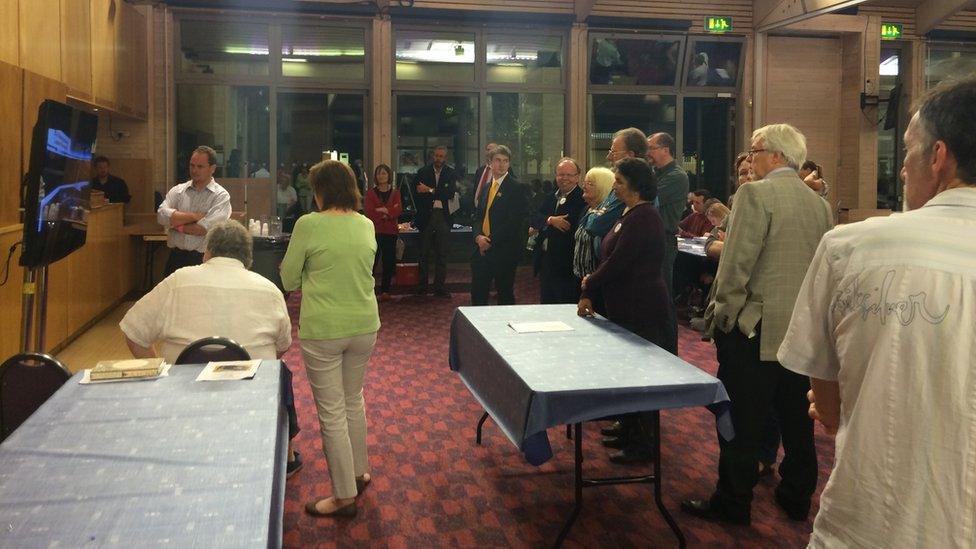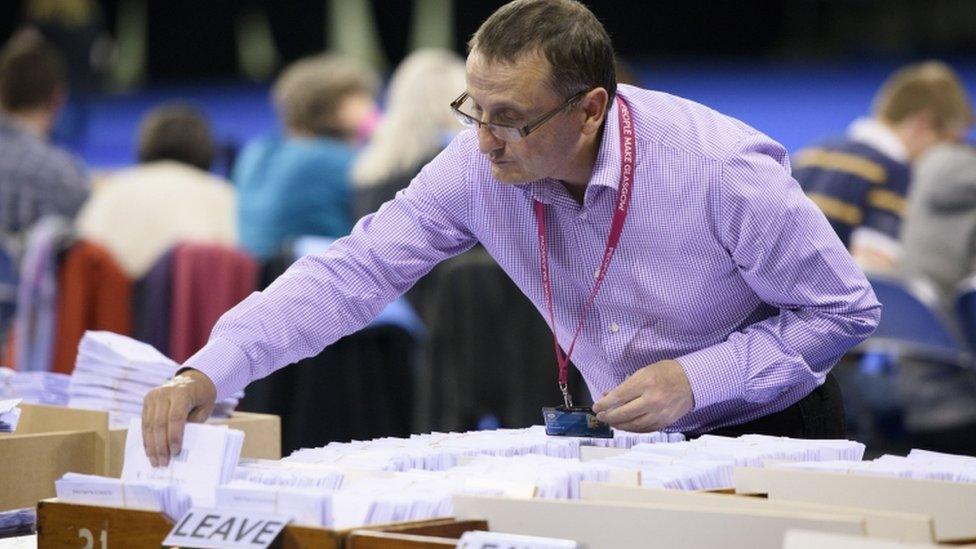EU referendum: East of England backs Brexit
- Published

The first result has come in from the regional count taking place in Chelmsford Essex
The east of England has overwhelmingly voted in favour of Britain leaving the EU.
Basildon, which declared its result early on, set the trend for the region, with 68.6% backing a Brexit.
Across the 47 council areas of the eastern region 1,880,367 have voted leave and 1,448,616 remain.
Just five areas in the east - Norwich, Cambridge and St Albans among them - voted to remain. The other 42 voted to leave.
Responding to the results, the eastern region's Labour MEP Richard Howitt, said: "Despite some of the stupidity and excesses of the campaign, in the end we will look back and say - with a very high turnout - that the Great British electorate has undertaken a democratic process.
"But I hope that also all of us will respect the result."

Clacton MP Douglas Carswell said parliamentarians now needed to keep their heads and "act in the national interest"
UKIP Clacton MP Douglas Carswell said Mr Cameron had a "duty" to the British people to oversee the exit from Europe as Prime Minister.
"What we need to do is make sure we keep our heads and we act in the national interest, and not in the narrow partisan interests of any one party."

By Tom Barton, BBC East
We have long known that the east of England is one of the most Eurosceptic parts of Great Britain.
In the past few hours, that fact has shown itself to be overwhelmingly true.
Across Essex and right up the east coast, people voted for Brexit. The same is also true further west, with a few notable exceptions such Norwich and Cambridge.
As the sun rises over Lowestoft this region - just like the rest of Britain - is changed forever.


By Paul Scoins, BBC Three Counties Radio political reporter
The verdict was delivered slowly but surely. The people of Beds, Herts and Bucks want to leave the EU.
Only four areas in our region wanted to stay - St Albans, North Herts, Chiltern and Wycombe.
All the other areas wanted to go. Luton - home to Vauxhaul and Easyjet who both wanted to remain - voted to go by 56.5%. In Milton Keynes, the Leave vote won by a majority of just 3%.
Local UKIP MEP Patrick O'Flynn says he thinks the money markets will settle down and the UK will be a strong independent country in the future.


Campaigners watch the national picture emerging on a television screen at Trinity Park in Ipswich
- Published24 June 2016
